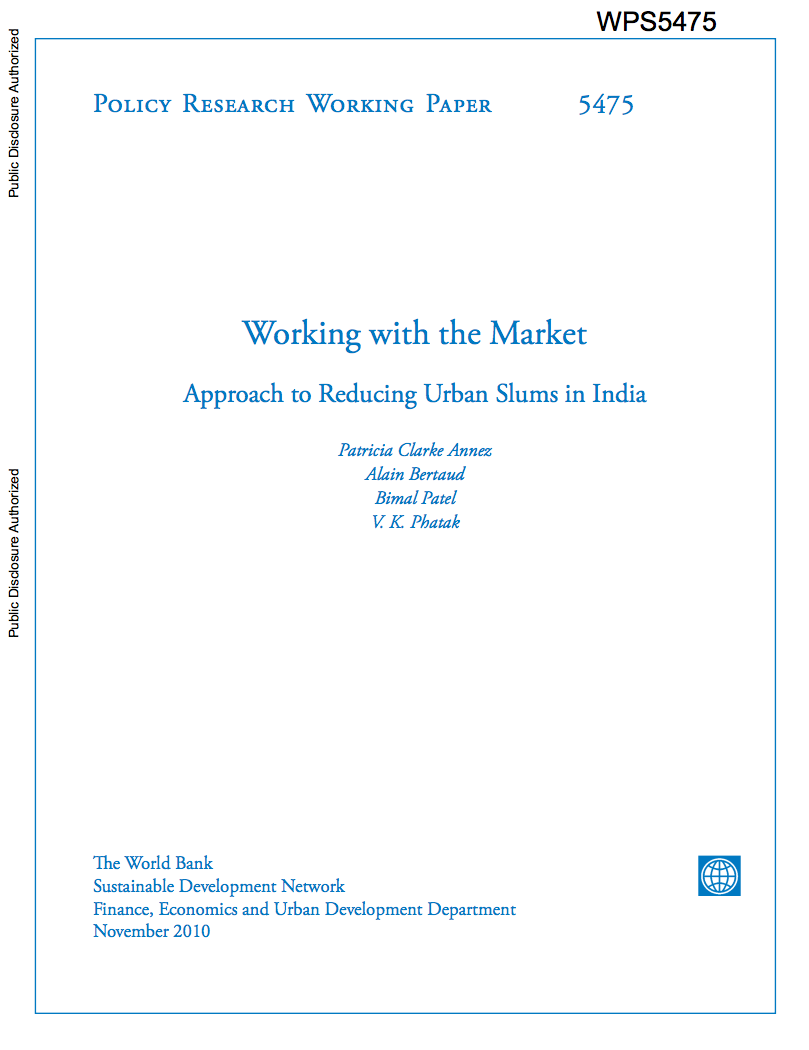The World Bank is a vital source of financial and technical assistance to developing countries around the world. We are not a bank in the ordinary sense but a unique partnership to reduce poverty and support development. The World Bank Group has two ambitious goals: End extreme poverty within a generation and boost shared prosperity.
- To end extreme poverty, the Bank's goal is to decrease the percentage of people living on less than $1.25 a day to no more than 3% by 2030.
- To promote shared prosperity, the goal is to promote income growth of the bottom 40% of the population in each country.
The World Bank Group comprises five institutions managed by their member countries.
The World Bank Group and Land: Working to protect the rights of existing land users and to help secure benefits for smallholder farmers
The World Bank (IBRD and IDA) interacts primarily with governments to increase agricultural productivity, strengthen land tenure policies and improve land governance. More than 90% of the World Bank’s agriculture portfolio focuses on the productivity and access to markets by small holder farmers. Ten percent of our projects focus on the governance of land tenure.
Similarly, investments by the International Finance Corporation (IFC), the World Bank Group’s private sector arm, including those in larger scale enterprises, overwhelmingly support smallholder farmers through improved access to finance, inputs and markets, and as direct suppliers. IFC invests in environmentally and socially sustainable private enterprises in all parts of the value chain (inputs such as irrigation and fertilizers, primary production, processing, transport and storage, traders, and risk management facilities including weather/crop insurance, warehouse financing, etc
For more information, visit the World Bank Group and land and food security (https://www.worldbank.org/en/topic/agriculture/brief/land-and-food-security1
Resources
Displaying 4331 - 4335 of 4907Information, Direct Access to Farmers, and Rural Market Performance in Central India
This paper estimates the impact of a
change in procurement strategy of a private buyer in the
central Indian state of Madhya Pradesh. Beginning in October
2000, internet kiosks and warehouses were established that
provide wholesale price information and an alternative
marketing channel to soy farmers in the state. Using a new
market-level dataset, the estimates suggest a significant
increase in soy price after the introduction of kiosks,
The Value of Statistical Life : A Contingent Investigation in China
Economic analyses of development
projects and policies often involve assigning an economic
value to changes in the risk of loss of human life. A
typical term used in the economic analyses is the value of
statistical life, which reflects the aggregation of
individuals' willingness to pay for fatal risk
reduction and therefore the economic value to society to
reduce the statistical incidence of premature death in the
Industrial Wastewater Management in River Basins Nhue-day and Dongnai Project : Summary of LBCD consultants
This report provides a complete and
comprehensive analysis of industrial wastewater management
in industrial estates and craft villages in Vietnam. The
analysis was conducted in three separate stages: 1) a
detailed inventory of industries and industrial activities
responsible for the pollution of the Nhue-Day river basin,
including industrial zones, industrial clusters, industrial
points, craft villages and large-scale stand alone
Working with the Market : Approach to Reducing Urban Slums in India
This paper examines the policy options
for India as it seeks to improve living conditions of the
poor on a large scale and reduce the population in slums.
Addressing the problem requires first a diagnosis of the
market at the city level and a recognition that government
interventions, rather than thwarting the operations of the
market, should seek to make it operate better. This can
substantially reduce the subsidies required to assist low
The Little Green Data Book 2010
The little green data book 2010 show
wide disparities across regions. For example, urban air
pollution declined in most countries between 2000 and 2006
(the most recent year for which data is available), with the
greatest progress in low-income and lower middle-income
countries. But concentration levels are still nearly three
times higher in these countries than in high-income
countries. The book also estimates adjusted net savings,







